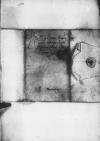Dominus Stanisław Kostka (*1487 – †1555), as a leader of the so-called nobles' party active in Royal Prussia since 1536, Kostka stood in opposition to most of the members of the Council of Royal Prussia, who wanted to maintain the autonomy of the province and a "balance of power" in terms of governance. The tension between the Prussian Subtreasurer and the Council had been increasing since the Diet in Graudenz (Grudziądz) in 1533. Kostka, connected with the royal court since his youth, was sent to Graudenz as the King's deputy and, contrary to custom, decided to take part in the proceedings. In response to such a step, the Council members stopped the meeting. Kostka accused them of hostility towards the Poles and intervened on this matter at the court. In the absence of the then Bishop of Ermland (Mauritius Ferber) it was Dantiscus who chaired the Graudenz Diet. The incident badly harmed his future relationships with Kostka; 1531-1555 Treasurer of the Prussian lands and Treasurer of Marienburg (Malbork); 1544-1545 Castellan of Elbing (Elbląg), 1545-1546 Castellan of Kulm (Chełmno); 1546-1549 Vice-Voivode of Kulm; 1546-1551 Voivode of Pomerania; 1551-1555 Voivode of Kulm (PSB 14, p. 356; Urzędnicy 5/2, p. 216; MAŁŁEK 1976, p. 119-123)⌊Stanislaus CosthkaStanisław Kostka (*1487 – †1555), as a leader of the so-called nobles' party active in Royal Prussia since 1536, Kostka stood in opposition to most of the members of the Council of Royal Prussia, who wanted to maintain the autonomy of the province and a "balance of power" in terms of governance. The tension between the Prussian Subtreasurer and the Council had been increasing since the Diet in Graudenz (Grudziądz) in 1533. Kostka, connected with the royal court since his youth, was sent to Graudenz as the King's deputy and, contrary to custom, decided to take part in the proceedings. In response to such a step, the Council members stopped the meeting. Kostka accused them of hostility towards the Poles and intervened on this matter at the court. In the absence of the then Bishop of Ermland (Mauritius Ferber) it was Dantiscus who chaired the Graudenz Diet. The incident badly harmed his future relationships with Kostka; 1531-1555 Treasurer of the Prussian lands and Treasurer of Marienburg (Malbork); 1544-1545 Castellan of Elbing (Elbląg), 1545-1546 Castellan of Kulm (Chełmno); 1546-1549 Vice-Voivode of Kulm; 1546-1551 Voivode of Pomerania; 1551-1555 Voivode of Kulm (PSB 14, p. 356; Urzędnicy 5/2, p. 216; MAŁŁEK 1976, p. 119-123)⌋ thesaurarius Royal Prussia (Prussia Regalis), region, part of Prussia annexed to the Kingdom of Poland in 1466 under the provisions of the Second Peace of Thorn⌊terrarum PrussiaeRoyal Prussia (Prussia Regalis), region, part of Prussia annexed to the Kingdom of Poland in 1466 under the provisions of the Second Peace of Thorn⌋ et provisor Marienburg (Malbork), town and castle in northern Poland, Pomeranian Voivodeship, on the Nogat river, a branch of the Vistula at its delta, the capital of the Grand Masters of the Teutonic Order in Prussia (1309-1457), a voivodeship capital in Royal Prussia, which belonged to the Kingdom of Poland (1466-1772). Marienburg (taking turns with Graudenz (Grudziądz)) was the venue for the Provincial Diets of Royal Prussia, which were chaired by the bishop of Ermland (Warmia)⌊arcis regiae MariembergensisMarienburg (Malbork), town and castle in northern Poland, Pomeranian Voivodeship, on the Nogat river, a branch of the Vistula at its delta, the capital of the Grand Masters of the Teutonic Order in Prussia (1309-1457), a voivodeship capital in Royal Prussia, which belonged to the Kingdom of Poland (1466-1772). Marienburg (taking turns with Graudenz (Grudziądz)) was the venue for the Provincial Diets of Royal Prussia, which were chaired by the bishop of Ermland (Warmia)⌋ litteris significavit nobis, quod indigne ac ignominiose sit tractatus in Provincial Diet of Royal Prussia ⌊conventu GraudecensiProvincial Diet of Royal Prussia ⌋ per Vestram Reverendissimam Dominationem quodque ipsum a consilio tamquam suspectum hominem repulerit, aliis illo tempore in loco consilii manentibus, quibus locus in consilio non est. Rem vero magnifaciens, plurimum gravat, asserens se nullam causam umquam causam dedisse, qua id ipsum demeruisset. Nos revera cum molestia eius litteras legimus et maxime, quod istud sibi a Reverendissima Dominatione Vestra acciderit ita publice, officium honestum thesaurariatus terrae istius et castri primi terrae Prussiae magistratum gerenti, praesertim quod tales officiales in regio consilio et honorantur et loco dignantur. Nec dubium est, quod nostrates mirum in modum, cum hoc intellexerint, commovebuntur et murmurabunt Vestraeque Reverendissimae Dominationi, quod nollemus, imputabunt, quod ipsa Polonos odio haberet et propterea etiam eos a consiliis abigit. Certe mirati sumus et ferme obstupuimus litteras de hoc casu legentes, scientes ipsam semper fuisse bonum Polonum et nunc sese alium prae se ferre, si credendum est. Tametsi Prussia iura et consuetudines suas habeat, tamen pars Regni est et omnibus dominis conceditur honor consularis in consilio Regni, verendum itaque est, ne eiuscemodi separationibus invehatur suspicio ad odia promovenda. Sacra enim maiestas regia, dominus noster clementissimus, cum secretiora consilia habere vult, clam illis praedicit, quos illis consiliis adhibere non velit, quoniam turpius eicitur, quam admittitur hospes. Et Vestra Reverendissima Dominatio, ut prudens, declinando fomites odiorum mansuetiori consilio rem hanc componat, ne firmetur apud homines invecta in multos opinio, quod istic iuratur ab his, qui consilio adhibentur, praeter iuramentum, quod sacrae maiestati regiae praestatur, quod nullum consilium maiestati regiae et Regni consiliariis pandi debet, quod istic editur. Nos vero, qui diligimus fraterne Vestram Reverendissimam Dominationem, haec eidem scribendum putavimus et eandem praemonere, ne sibi sine causa negotium et odium conflet. Quae feliciter valeat et nos amet fraterne.


 BCz, 249, p. 150
BCz, 249, p. 150